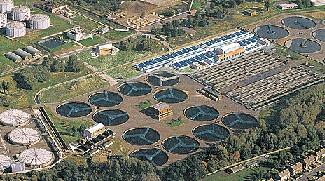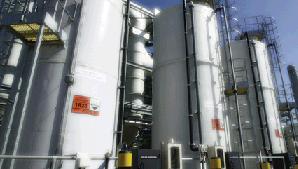United Utilities have won financial backing from DEFRA for a project to extract methane from the UK’s second biggest sewage works in Davyhulme, Manchester. The collected biomethane will be sufficient to meet the heating and cooking needs of up to 5,000 homes by 2011, with the gas supplied through the existing local gas pipework network.

Wastewater sludge from the sewage plant will be broken down in the absence of oxygen (anaerobic digestion) resulting in the production of biogas (see our article on biogas here, and our article on anaerobic digestion and biogas here). 50-70% of biogas is methane which can be extracted and is almost identical in composition to the natural gas extracted from under the North Sea. After a little propane, and the artificial ‘gas’ smell is added to it (since methane is odourless), the bio-methane can be piped to people’s homes and used just like natural gas.

Biogas is already in use at Davyhulme (as pictured above) to power the vast site’s combined heat and power system. This has reduced the carbon footprint of the site in addition to using up what was previously a waste product.
In an initial £4.3 million pilot project, sufficient gas to supply 500 homes will be extracted and injected into the local gas grid – the first time that this has occured in the UK on a commercial scale. The pilot will also produce enough gas to power all 24 of United Utilities’ sludge tankers. It is hoped that there is the potential to produce sufficient gas to supply as many as 5,000 homes. Since sewage is processed 24 hours per day, every day, there will be a constant supply of renewable gas from the plant.